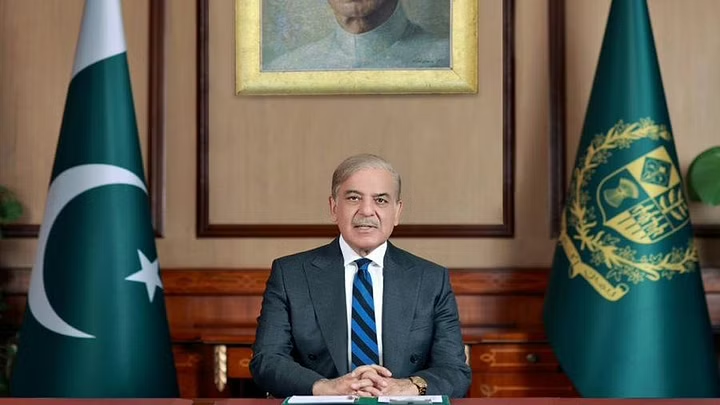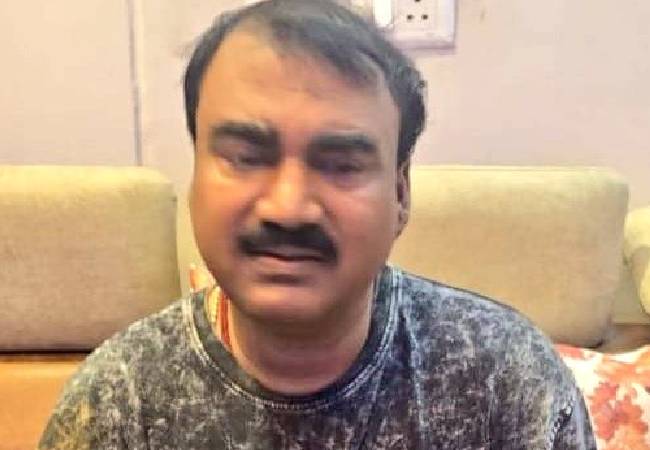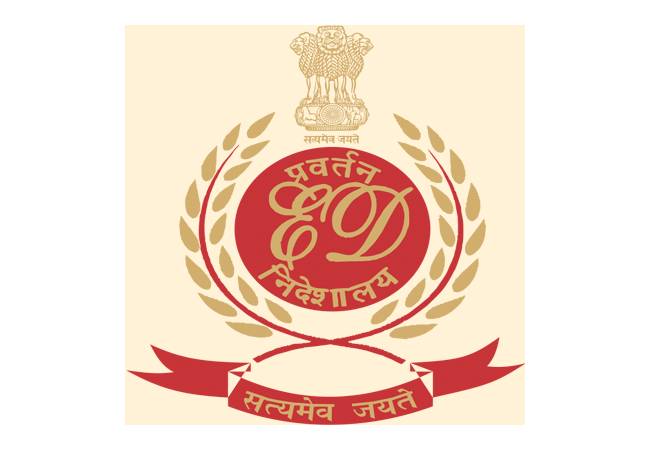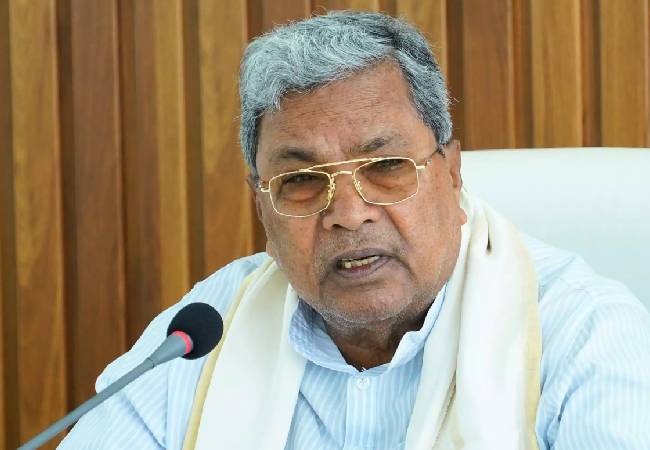Islamabad, Aug 21: Prime Minister Shehbaz Sharif has said that Pakistan wants to have "permanent peace" with India through dialogue as war is not an option for either of the countries to resolve the Kashmir issue, according to a media report on Saturday.
Speaking to a delegation of students from Harvard University, Sharif also said that sustainable peace in the region was linked to the resolution of the Kashmir issue as per the UN resolutions, The News International newspaper reported.
Pakistan resolves to maintain peace in the region, and that sustainable peace in the region was linked to the resolution of the Kashmir issue as per the UN resolutions, he said during the interaction on Friday evening.
We want permanent peace with India through dialogue as war is not an option for either of the countries, he was quoted as saying in the report.
Relations between India and Pakistan have often been strained over the Kashmir issue and cross-border terrorism emanating from Pakistan.
However, the ties between the two countries nosedived after India abrogated Article 370 of the Constitution, revoking the special status to Jammu and Kashmir and bifurcating the state into two Union Territories on August 5, 2019.
India's decision evoked strong reactions from Pakistan, which downgraded diplomatic ties and expelled the Indian envoy.
India has repeatedly told Pakistan that Jammu and Kashmir was, is and shall forever remain an integral part of the country.
India has said it desires normal neighbourly relations with Pakistan in an environment free of terror, hostility and violence.
During the interaction, Sharif pointed out that Islamabad and New Delhi should have competition in trade, economy and improving the conditions of their people.
He said Pakistan was not an aggressor, but its nuclear assets and the trained army are deterrence, he said, adding that Islamabad spends on its military to protect their frontiers and not for aggression.
In response to a question about Pakistan's economy and the International Monetary Fund (IMF) programme, the premier said that the country's economic crisis stem from structural problems along with political instability in the recent decades.
He said the first few decades since the inception of Pakistan witnessed impressive growth across all sectors of the economy when there were plans, national will and the implementation mechanism to produce outcomes.
Overtime, we lost the edge in sectors in which we were ahead. The lack of focus, energy and policy action led to reduction in national productivity, Sharif added.
Cash-starved Pakistan is facing growing economic challenges, with high inflation, sliding forex reserves, a widening current account deficit and a depreciating currency.
With the rising current account deficit at USD 13.2 billion in the first nine months and pressing external loan repayment requirements, Pakistan required financial assistance of USD 9-12 billion till June 2022 to avert further depletion of foreign currency reserves.
As Pakistan turned 75 on August 14, Sharif wrote an essay in The Economist magazine in which he stated that the country in its adolescence, in the 1960s, brimmed with hope and promise as it had a date with destiny.
He said the nation was widely thought ready to "become the next Asian tiger ". However, in 2022, Pakistan found itself mired in its latest economic crisis.
Meanwhile, the International Monetary Fund's executive board will meet on August 29 and is expected to approve a bailout package for Pakistan, including the pending disbursement of about USD 1.18 billion.
Let the Truth be known. If you read VB and like VB, please be a VB Supporter and Help us deliver the Truth to one and all.
Mumbai: Mumbai was thrown into panic late on Thursday night when police received a WhatsApp message warning of a large-scale terror attack during the Ganesh festival. The message, written in the name of a jihadi group called “Lashkar-e-Jihadi,” claimed that 14 Pakistani terrorists had entered Mumbai with 400 kilograms of RDX loaded in 34 vehicles.
It warned of blasts that could kill as many as one crore people. Authorities immediately declared a high alert, and the case was handed over to the Crime Branch while the Anti-Terrorism Squad and other security agencies were put on standby.
Within hours, the threat made national headlines. Television channels and online portals reported the possibility of a terror strike, repeatedly linking the message to Pakistan-based groups.
The incident was projected as yet another attempt to destabilize Mumbai, and the supposed involvement of a jihadi outfit quickly gained traction across the media. However, a swift investigation by Mumbai Police traced the origin of the message to a very different source.
By Saturday, police had tracked down and arrested Ashwin Kumar Supra, a 50-year-old astrologer and Vastu consultant living in Sector 79 of Noida. Originally from Patna, Kumar admitted during interrogation that he had sent the message using the name of his former friend Firoz. In 2023, Firoz had lodged a fraud case against him at Phulwari Sharif police station in Patna, leading to Kumar’s three-month imprisonment. Seeking revenge, Kumar attempted to frame Firoz by posing as a jihadi terrorist. Police recovered his mobile phone, SIM cards, and other digital devices used in the hoax.
When the threat first came to light, social media was flooded with heated reactions. Journalist @Manju_IBNews wrote, “Another election around the corner!” while user @kv_mcu posted an aggressive comment demanding to “ban Islam and burn the Quran,” calling for mass deportations and tying the incident to culture and religion. In response, @RIMMS51979 countered sharply, saying, “Caller Name is Ashvini kumar what will you burn now.” Another user, @Valkyrie00777, questioned the credibility of the threat, pointing to contradictions in the claim that 14 terrorists had entered India with 34 bombs and 400 kilograms of RDX. Meanwhile, @Liberal51601607 remarked, “Terrorists have no religion.. Anyone..?”
Fact-checkers also weighed in. @zoo_bear (Mohammed Zubair) accused NDTV of omitting crucial context, posting: “Adani's TV hasn't mentioned that the accused Ashwini Kumar sent the bomb threat message to Mumbai police in the name of his friend Firoz to frame him.” The fact-check website Aazad Fact Check (@AazadFactCheck) published a detailed rebuttal, saying the story had quickly evolved into a propaganda tool. It noted that the supposed intelligence about “human bombs in vehicles” was technically flawed and described the entire sequence as “a pure example of Indian narrative building before a false flag operation.”
Adani's TV hasn't mentioned that the accused Ashwini Kumar sent the bomb threat message to Mumbai police in the name of his friend Firoz to frame him. https://t.co/17nZxYOrql
— Mohammed Zubair (@zoo_bear) September 6, 2025
After Ashwini Kumar’s arrest, the tone of the online conversation shifted sharply. Activist @ShabnamHashmi posted, “Ashwini Kumar 50 Year Old Astrologer from Noida has been arrested for sending these threats in the name of a Muslim. This is how Sangh sleeper cells are spreading hatred. Stop the Hate factory! Vote Out the Vote Chori Gang.” Journalist @indscribe (Shams Ur Rehman Alavi) observed that newspapers splashed the initial threat on front pages but buried the arrest details inside. “When the guy gets caught, the same newspapers don't publish his photo, relegate it to page 14 or reduce it to a single column… Interest gone after ‘name’ found,” he wrote.
Ashwini Kumar 50 Year Old Astrologer from Noida has been arrested for sending these threats in the name of a Muslim. This is how Sangh sleeper cells are spreading hatred
— Shabnam Hashmi (@ShabnamHashmi) September 6, 2025
Stop the Hate factory !
Vote Out the Vote Chori Gang pic.twitter.com/IzpLjWVJgu
Other users highlighted systemic and political angles. @shfique13 argued that there are now “two laws” in the country—one protecting those aligned with the government and another used to suppress truth-tellers. @SoodRajive claimed the episode was staged, alleging Kumar had been paid to frame a minority and calling it “a staged toolkit drama.” User @hussain2577 wrote sarcastically, “Such an innocent n bright person. Plzz grant him bail, Garland him, Give him BJP membership form.” Another account, @Sangliyana, remarked, “Risking his life just to frame a Muslim boy. This is what 11 years corrupting mind.” Finally, @rsbisht__ argued that Kumar’s only aim was to trap Firoz, linking it to what he described as rising hatred against Muslims in Uttar Pradesh under the Modi and Yogi administrations.





